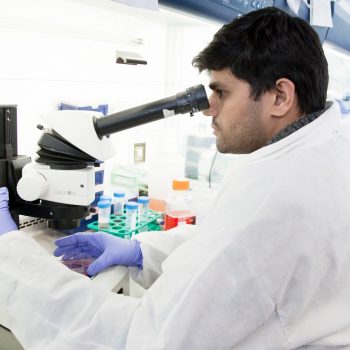Cambridge researchers awarded funding to establish Advanced Therapy Hub for the East of England
Researchers at Cambridge University Hospitals (CUH) have been awarded almost £1.5 million from the National Institute for Health and Care Research (NIHR) to purchase specialist equipment required to research, test and deliver advanced therapies, such as stem cell therapies and CAR-T cell treatments for cancer, in Cambridge.
Advanced therapies are ground-breaking medicines that can involve modifying the genetic code in specific cells, replacing diseased cells with healthy ones, or using specially engineered cells to deliver targeted therapies. These treatments offer the potential for a one-time intervention to treat chronic illnesses or life-threatening conditions.
Currently, patients requiring these therapies often need to travel to the few specialist hospitals that provide them, mostly located in London. This puts them out of reach for many patients across the region whose health or other circumstances make it impossible to travel so far to receive the treatment that they need. The new funding will support the development of an Advanced Therapy Hub in Cambridge, ensuring that patients from even remote coastal areas of the East of England can benefit from these life-changing treatments, without the need for a four-hour journey to London.
The funding will be used for specialist equipment, including:
- Cell collection machinery (apheresis): Collection of stem cells (for cell and gene therapies) or immune cells (for CAR-T therapies) from a patient’s blood is an essential first step in the production of many advanced therapies. Having a research-dedicated machine will enable CUH to support an increased number of clinical trials in this area.
- Advanced therapy production equipment: Specialist equipment to produce, purify, quality-control and supply clinical-grade materials used in advanced therapies. Lack of this equipment is hampering the ability to deliver clinical trials across the UK, and the ability to produce material of the required quality in Cambridge will significantly increase our ability to deliver essential research trials for these conditions.
- Precision delivery support: Some advanced therapies require careful, targeted delivery to a specific site in the body, in order to maximise their effect while minimising side effects and complications. This funding will support imaging technology, such as ultrasound equipment and intra-operative MRI that can guide clinicians in delivering these new therapies with pinpoint accuracy.
In collaboration with the NIHR, the University of Cambridge, and industry partners, the hub will advance research and development of new therapies, including for rare diseases, auto-immune diseases, cancer and neurodegenerative conditions.
The Advanced Therapy Hub will bring transformative benefits to the region by increasing local capacity for clinical trials in regenerative medicine and immunotherapy. This will expand access to these cutting-edge treatments across the East of England.
Dr Ben Uttenthal, consultant haematologist at CUH commented: “We’re delighted to have secured this funding. Over the last few years in Cambridge we have successfully treated many patients from across the East of England with cell and gene therapies that have been made elsewhere. This equipment will take us to the next level, allowing us to make our own completely new advanced therapies in partnership with the University and then test them in world-first clinical trials.”
Professor Miles Parkes, director of the NIHR Cambridge Biomedical Research Centre, commented: “This support from the NIHR will make a critical difference to our ability to design and deliver truly innovative trials of new advanced therapies. Given the historic strengths in Cambridge relating to genetics and discovery science there is a wealth of opportunity to bring this to clinical impact through this support.”
Sarah Albon, director of the Cambridge Cellular Therapy Laboratory (CCTL) said: “Currently we have a wealth of scientific and clinical expertise on the Cambridge Biomedical Campus. This grant will aid the missing piece of the puzzle and enhance our ability to translate novel research from bench to bedside and manufacture life-saving therapies here on the patient’s doorstep.”
Professor John Bradley, director of research at CUH added: “These state-of-the-art facilities will support innovative research that will be undertaken in partnership with organisations across the region, strengthening the East of England’s research ecosystem.”



